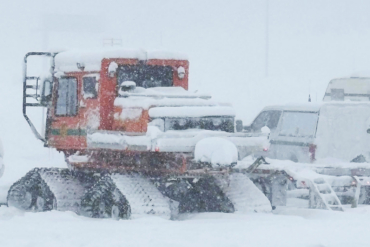A viral social media post suggests anyone lost outdoors while hiking or exploring should change their outgoing voicemail message to a distress call with their current location and situation. But that advice could prove very, very wrong — here’s why.
Most everyone who has ever ridden an elevator has stumbled on the notion that if it fell, jumping at the last instant might ingeniously save their life. It seems intuitively true — unfortunately, it does not stand up to reality (or physics).
But it still seems like a good idea. So it is with a recent social media post that continues to sweep across popular platforms. The anonymous PSA purports to hold the key to a simple, yet potentially life-saving tip for adventurers who become lost in the outdoors:
View this post on Instagram
In short, the tip suggests that when you lose your way on a backcountry hike, for example, you can change your outgoing voicemail to provide critical details about your situation — approximate location, nearby landmarks, and any pressing dangers. This way, the theory goes, anyone who attempts to reach you — even search and rescue — will have much of the information they need to assist.
The beauty of this, the post suggests, is that even if your phone battery dies, anyone who tries to reach you will receive the information.
But experts are weighing in to debunk what they’re calling this “potentially dangerous” advice.
Should You Change Your Voicemail If You’re Lost?
“It’s one of those ideas that sounds nice on paper, but the more you think about it, the more flawed, unnecessary, and potentially dangerous it is,” said Jerry Kobalenko, polar explorer and editor of ExplorersWeb.
“One of the keys to staying safe outdoors is going over what you will do in worst-case scenarios ahead of time. It’s called constructive pessimism. And if you are relying on a bad idea, your emergency will become worse when you discover to your horror that you don’t have cell coverage or by the time that someone thinks to phone you, your situation has deteriorated. With your dying battery, call 911 and/or leave a message for your spouse or text your friends with specific instructions.”
Even professional search and rescue have taken to the internet to quell the spread of the advice. Alpine Rescue Team — a trained, volunteer mountain rescue team in Evergreen, Colo. — debunked the post, in no uncertain terms. In short, Alpine Rescue offered these key points:
- If you’re off-grid without service, you cannot change your voicemail.
- Even if you do have service, dialing your voicemail and recording a new message could waste precious battery. Your battery power is better conserved and used to proactively reach out for help.
- Text 911 or family/friends. Not only do texts use up less battery, but most phones will also continue to try to send out a text when coverage is spotty.
Above all, both Kobalenko and other experts agree this viral post can, albeit unintentionally, supplant proven preparedness measures. This means many folks may fail to practice and observe life-saving precautions because they believed that changing their voicemail could be the magic ticket.
Instead, prudent preventative measures — like packing emergency survival kits, telling friends and family where you’ll be and when you expect to be back, having an off-grid communication device (Garmin, Bivy Stick, or Spot), and knowing how to navigate with a compass and map — can have proven results. In short, don’t be lulled by a seemingly simple solution — it can have catastrophic consequences.
“False security is a real danger in a life-threatening situation,” Kobalenko warned.








